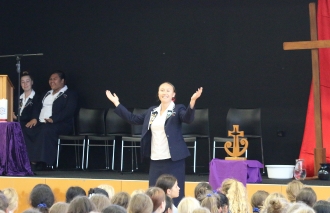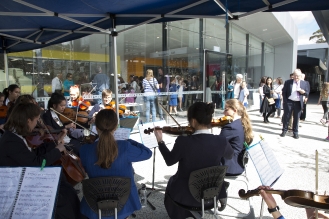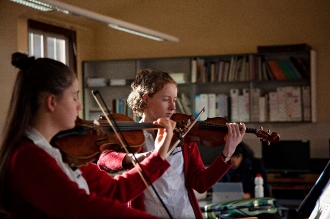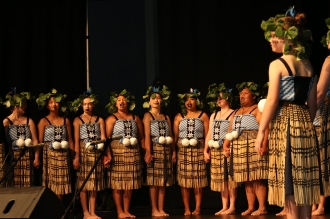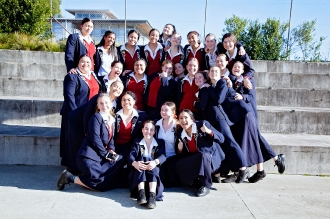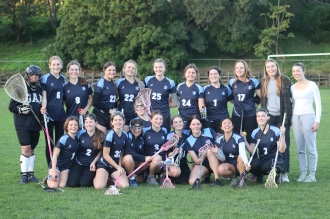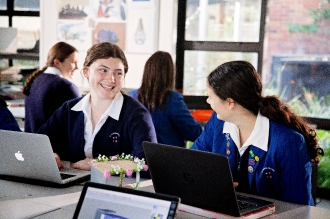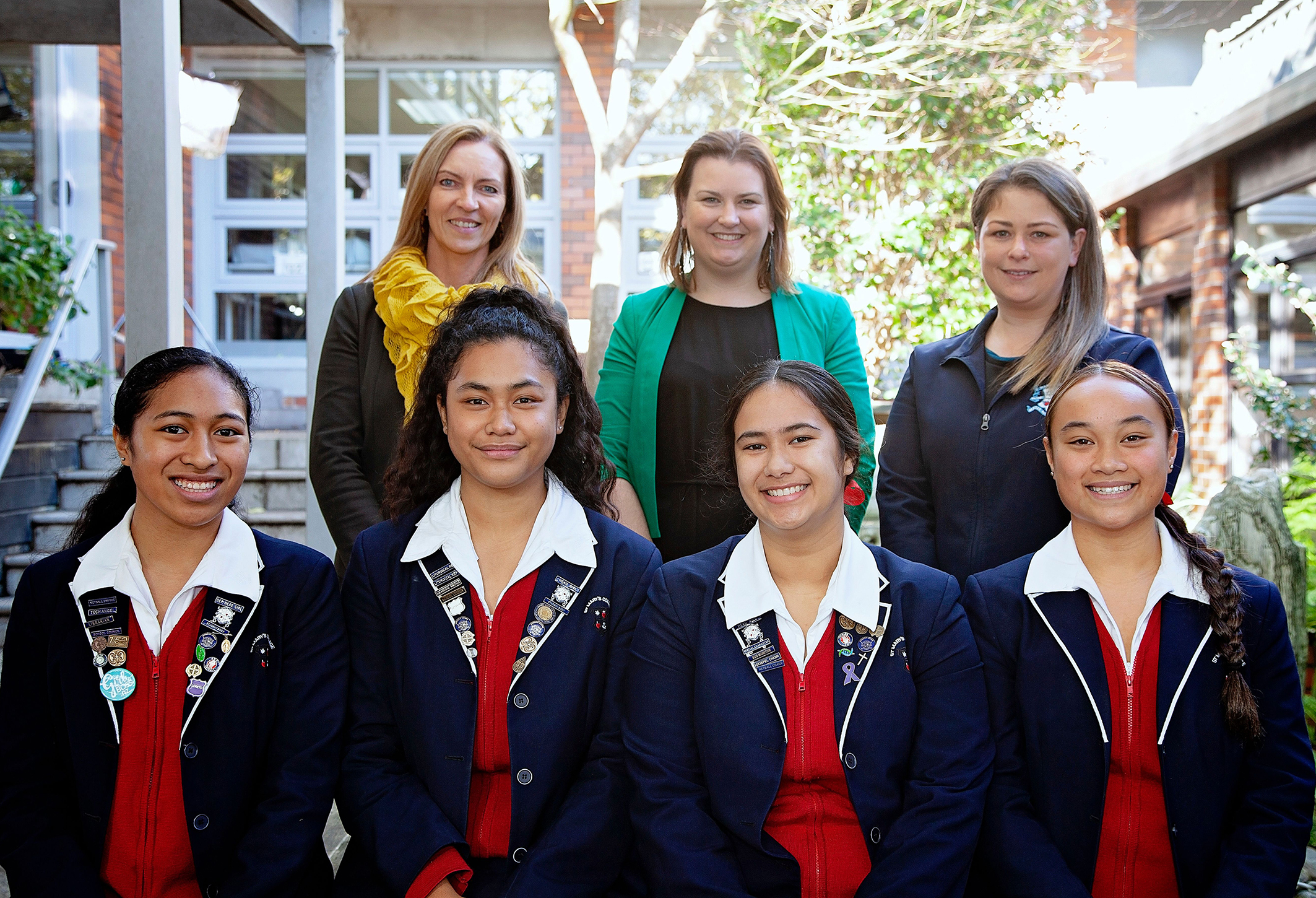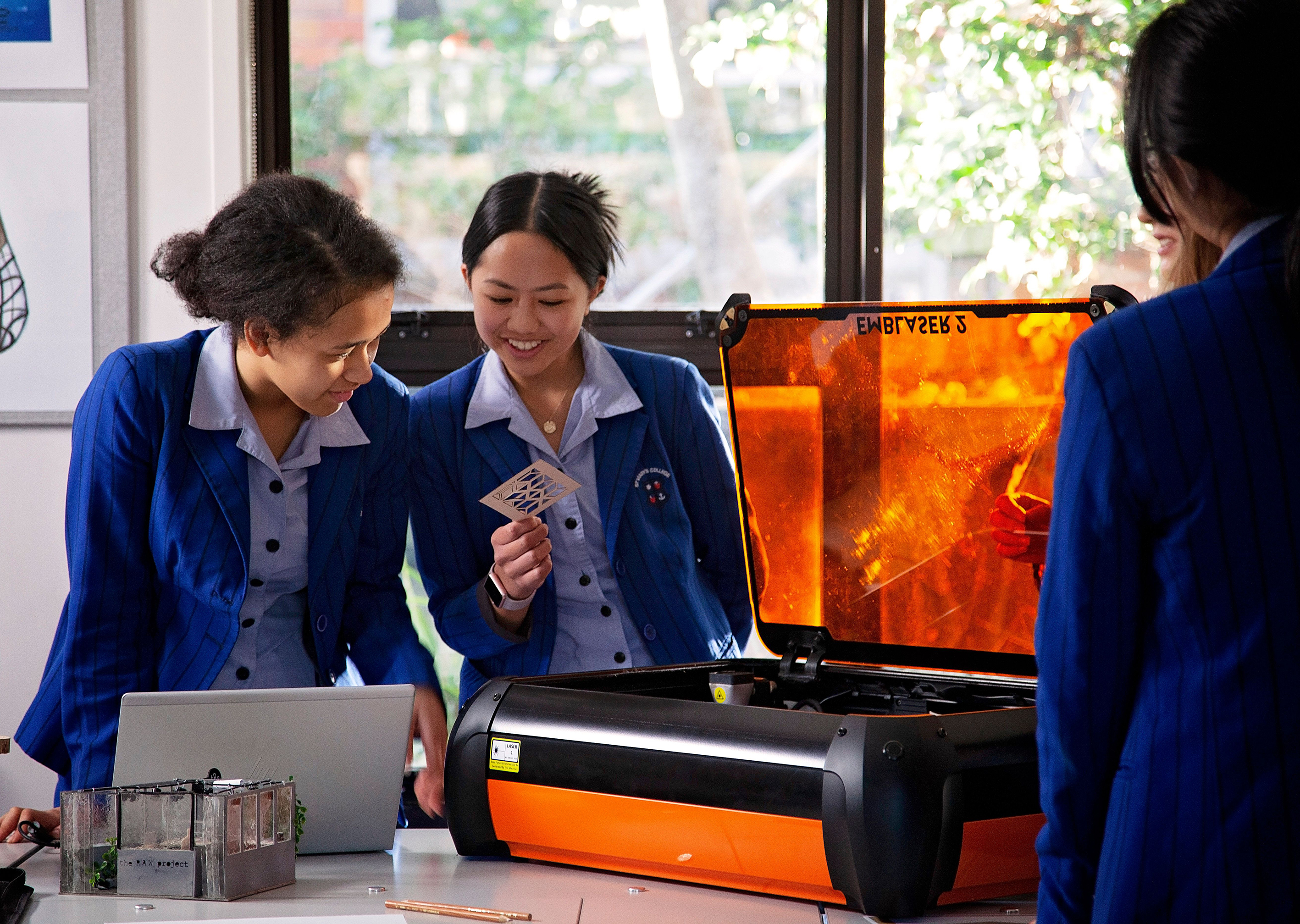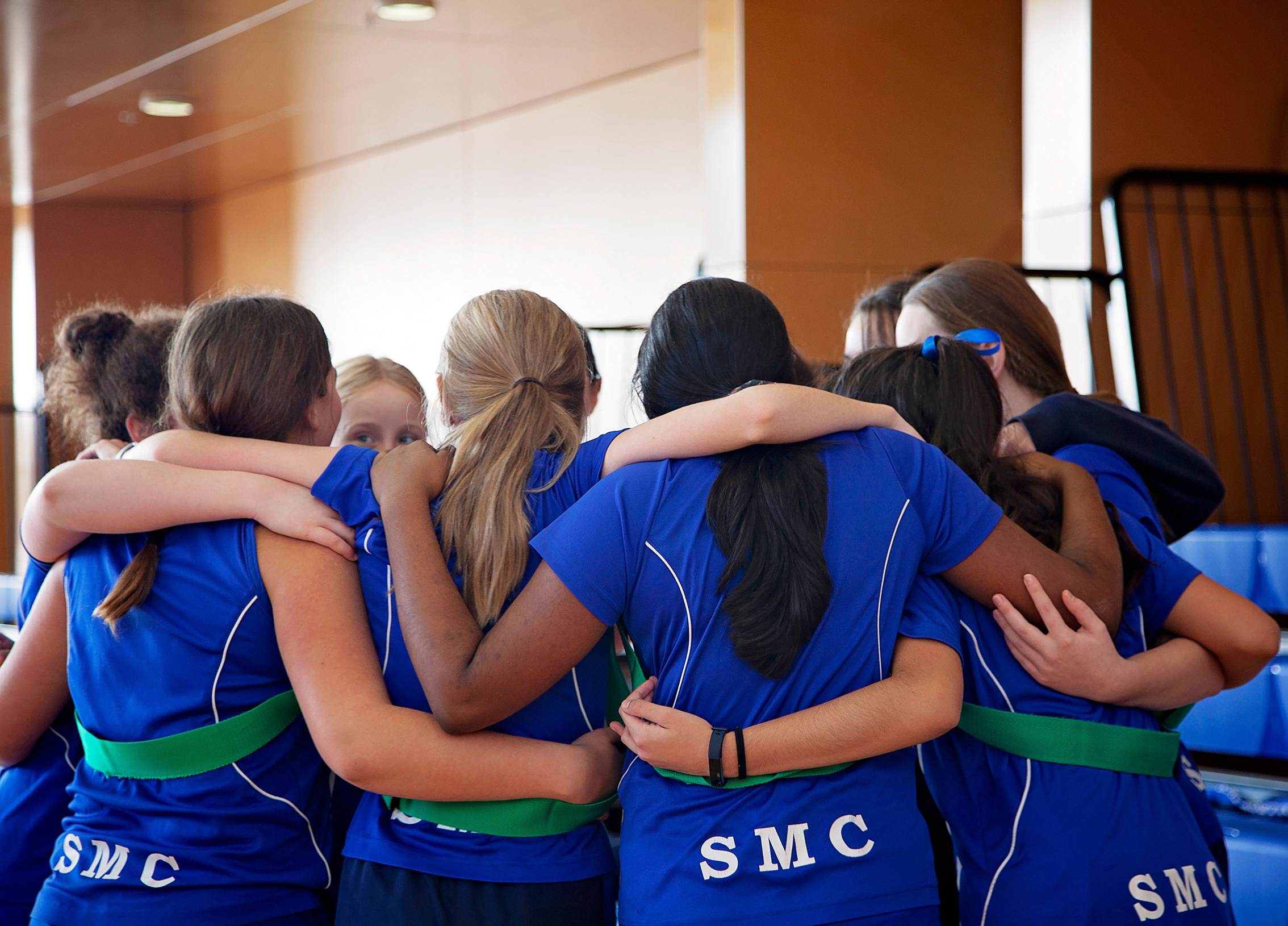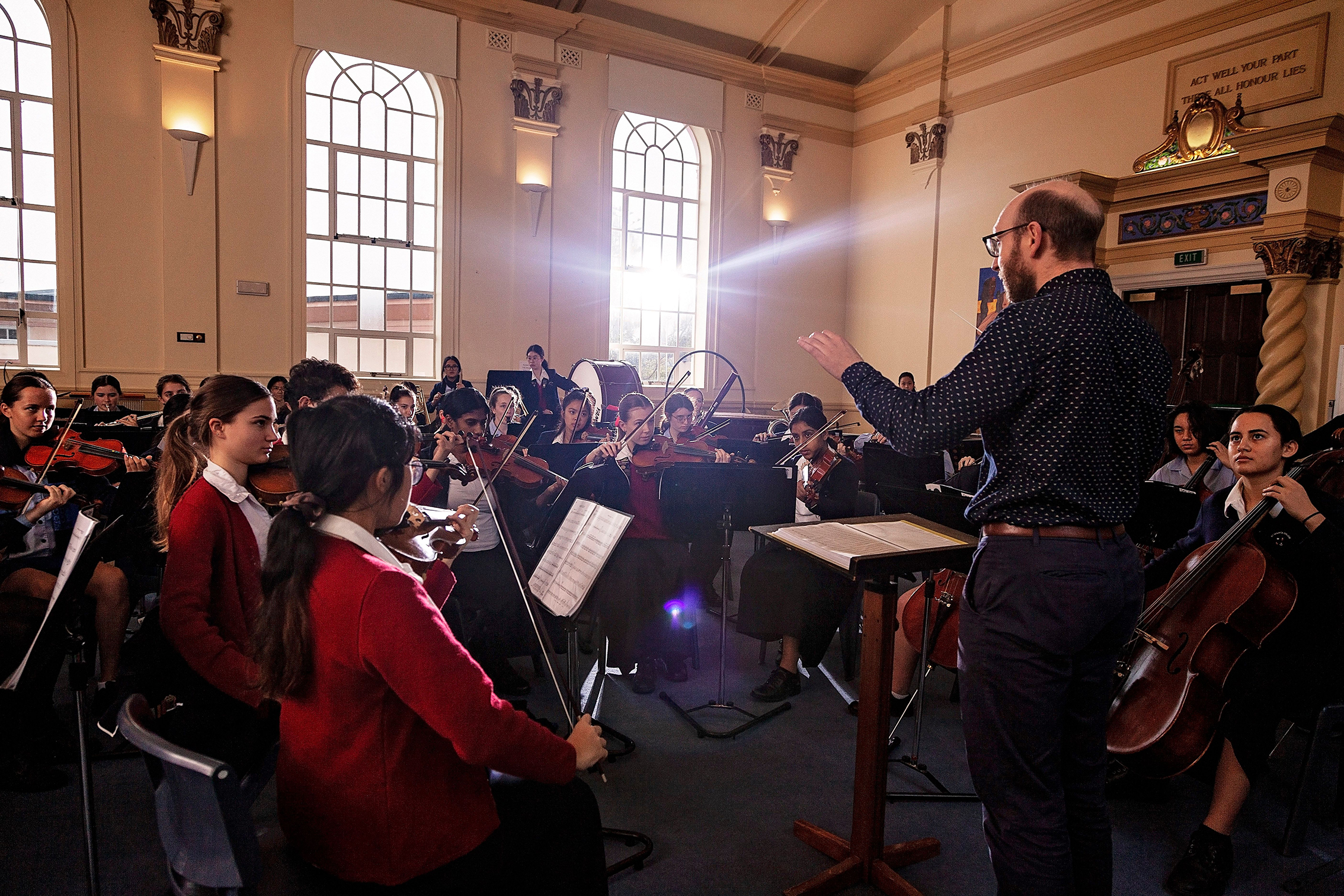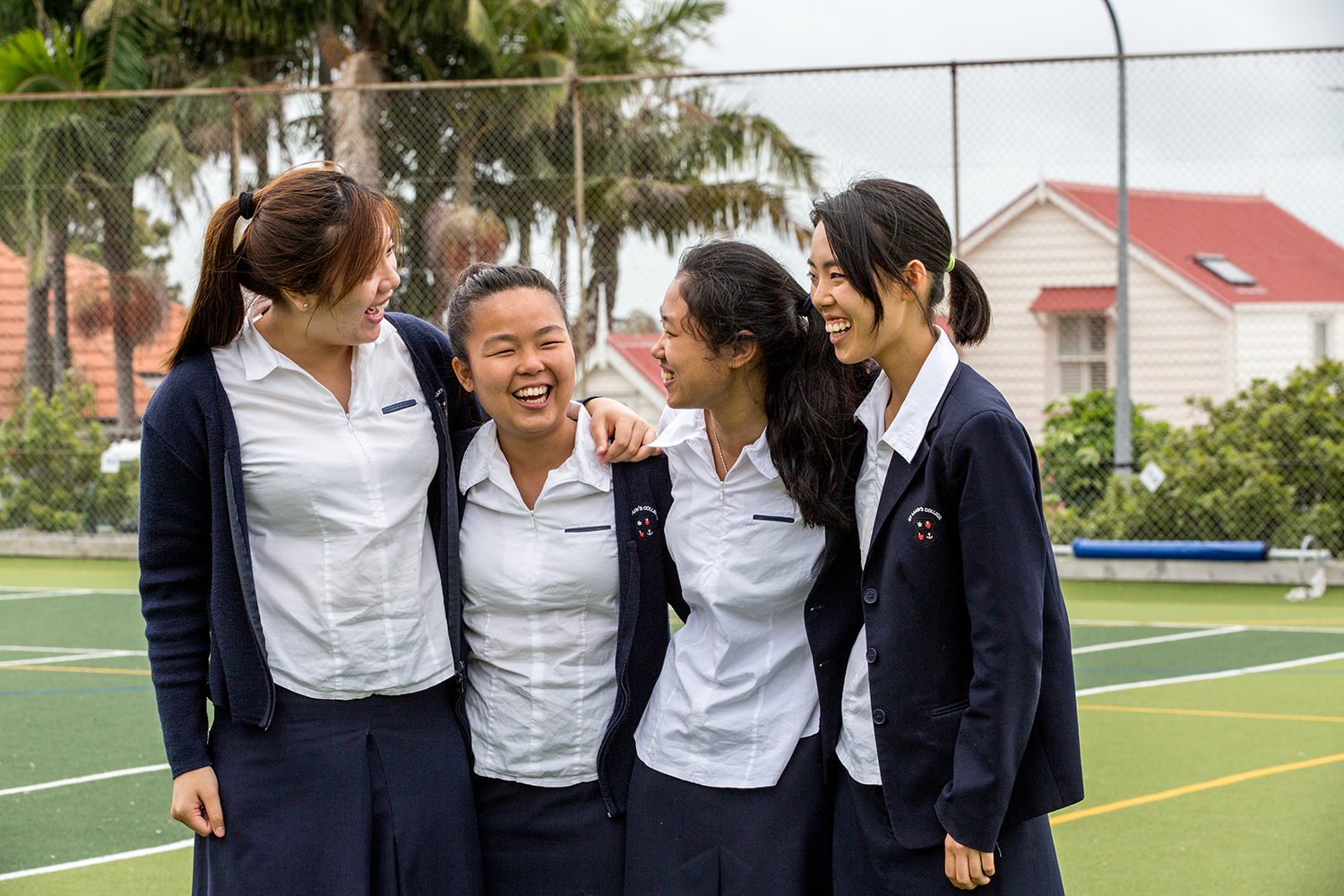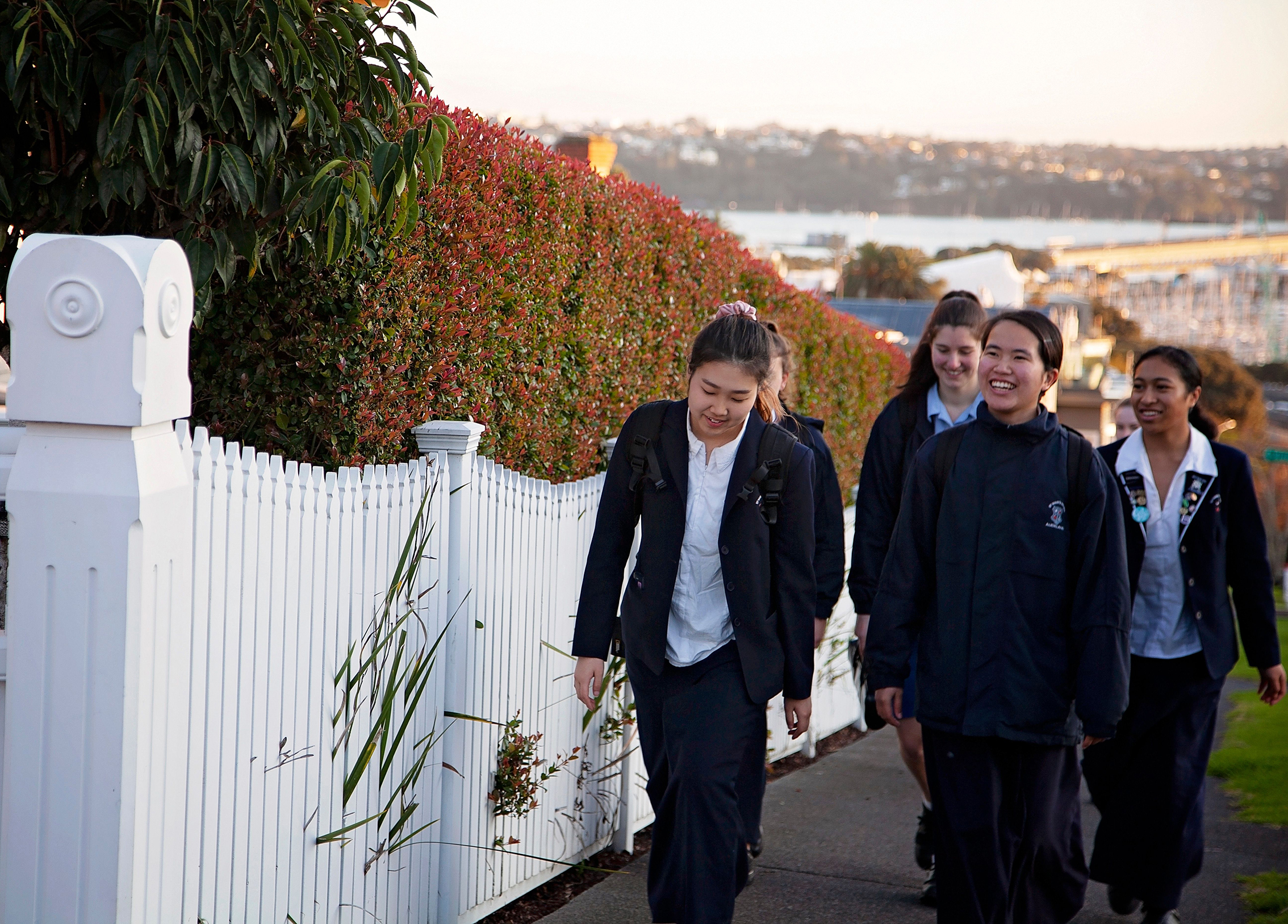News Feeds
-
175th Celebrations at St. Mary's College
2025 is the 175th year of St. Mary’s College. As one of the oldest girls school in New Zealand,...
-
2024 NCEA Results
We are again very proud of the academic results achieved by our students in 2024. NZQA data shows...
-
2026 Enrolments
All the information about enrolment can be found here Should you have an enrolment enquiry, please...
-
Alumni on Facebook
Feeling nostalgic? Want to reconnect with old classmates or teachers and relive moments from your...
-
Bounce Back 4 Syria
ReliefAid is a kiwi charity delivering emergency aid to people affected by conflict. Working in...
-
MB Development
The Mother Benedict Block (MB) refurbishment is now complete. It is great to see all the spaces...
-
OPEN DAY 2025
We invite you to join us for our annual OPEN DAY on Thursday 6 March 2025. This is a wonderful...
-
St Mary's College Video
We are pleased to present our St Mary's College promotional video. Please click below to check out...
The aims of the Mathematics and Statistics Department are to:
- Help to develop a belief in the value and usefulness of mathematics
- Nurture confidence in mathematical ability
- Encourage a continuing and creative interest in mathematics
- Help to foster and develop mathematical talent
Mathematics is a compulsory subject in Years 7 to 11
In Year 11, there are two courses, Mathematics with Statistics (11MAT) and General Mathematics (11MAG)
In Year 12, students may choose Mathematics (12MAT) or Mathematics and Statistics (12MAS) as one of their subject options
In Year 13, two Mathematics options are offered: Mathematics with Calculus (13CLC) or Mathematics with Statistics (13MAS)
Mathematics Staff |
| Faculty Leader | Dr Louise Sheryn |
| Assistant Faculty Leader | Mrs Abigail McKague |
| Teachers | Mrs Janet Angelo |
| Ms Pamela Fisher | |
| Ms Bernie Judeel | |
| Mr Andrew Wang | |
| Mr Francisco Barros | |
| Dr Jarafshan Mistry | |
| Mrs Saima Kasim-Phillips | |
| Mr Brian Nolan |
| Languages Staff 2025 | ||
| Faculty Leader | Priscilla Lynch | French |
| TIC Te Reo Māori | Waiana Jones | Te Reo Māori |
| Teachers | Janet Angelo | Chinese |
| Linda Johnson | French | |
| Oscar Mardell | French & Classical Studies | |
| Julie Harvey | French | |
| Daniel Ting | Chinese |
Ko toku nui, toku wehi, toku whakatiketike, toku reo
My language is my greatness, my inspiration, that which I hold precious
Languages are part of the core junior programme at St Mary's College.
Year 7:
All students take a 13 week taster course of each of three languages (Chinese, French and Te Reo Maori) for four periods per fortnight.
Year 8:
All students select two languages to continue with. Each language is studied for two terms for five periods per fortnight.
Year 9:
All students select one language – five periods per fortnight for the whole year.
Year 10 and Beyond:
Students are then free to continue their language study in Year 10 (four periods per fortnight) and to be entered to gain credits at Levels 1, 2 and 3 of the National Qualifications Framework at Years 11, 12 and 13.
Classical Studies is offered at Years 12 and 13 for credits at Levels 2 and 3.
We also offer NZ Scholarships to high achieving Languages and Classical Studies students.
Why learn a second language?
Please click here to read about the benefits of learning a second language.
Communicate across cultural boundaries
Electronic media, immigration, and ease of travel are making the world (and New Zealand) increasingly international and bringing you into contact with people from other cultures. This means that being able to communicate across cultural boundaries is more important than ever.
The single most important step you can take towards doing this effectively is to learn another language. In many countries, learning more than one language is the norm.
Friends, family connections and more
You might choose to study a language to which you have an existing cultural, family, or community connection, but there are many other reasons to study a language. For example, as well as communicating effectively with family members who do not speak English, you might be interested in:
- Talking to friends from around the world via social networking
- participating in cultural and sports exchanges
- travelling overseas and learning about other cultures
- learning about celebrations, festivals, and cuisines of other cultures
- enjoying films, fashion, music and the popular culture of another country
- learning more about how languages work.
Satisfaction, pleasure and work
Learning a second language can bring a great deal of personal satisfaction and pleasure. It can also open up a much broader range of future work opportunities by:
- Making it easier to work, travel, and study in other countries
- better understanding business culture inside and outside New Zealand
- developing the skills to work across cultures
- providing access to a wider range of ideas and knowledge
- generally strengthening literacy skills.
Learn about yourself and your own culture
Learning a language is not just about opening up opportunities for work and travel – it is likely to prove a journey of personal discovery. Experience of other cultures can help you understand and appreciate your own.
In the broad picture, when you learn a second language you acquire knowledge, skills, and understanding that are important for the social, cultural, economic, and environmental well-being of New Zealand.

Health and Physical Education are a compulsory requirement of the New Zealand curriculum. All students are required to participate in all Physical Education lessons, including swimming, unless certified as medically unfit. If your child is unable to participate for medical reasons, they will need to provide a signed note from a parent/caregiver to their Physical Education teacher. If the injury/illness continues beyond week, a medical certificate is required from a registered medical practitioner (i.e. Doctor or Physio).
Health, Physical Education and Dance Staff
| Faculty Leader | Sharon Davies | Health & PE |
| Teachers | Loryn Andrietz | Health & PE |
| Nicole Tsui | Dance & Jnr Health | |
| Nicole Paulin | Health & PE | |
| Alex Feek-Mills | Health & PE | |
| Anastasia Marnoch | Health & PE | |
| Aiofe Molloy | Health & PE |
Physical Education
Physical Education is a compulsory subject for Years 7 to 10. From Year 11 onwards, students may select Physical Education as an option right through to Scholarship level.
Throughout the Junior Physical Education programme, students will be provided with the opportunity to participate in a variety of physical activity contexts, promoting achievement, enjoyment and success. A key focus is learning the knowledge and skills to enjoy a healthy and active lifestyle. Alongside this, they will develop their interpersonal and leadership skills in varied and challenging contexts.
In Senior Physical Education students will continue to build on this knowledge further, developing their skills to enhance their relationships with others as they participate in group and leadership activities. Students will learn how to apply biophysical concepts such as biomechanics, anatomy and sports psychology. Sociocultural concepts are also applied to different topics, developing students critical thinking skills through to Scholarship level. Each Senior Physical Education course has an Outdoor Education component, where students experience activities such as High Ropes and Kayaking.
Health
Health is a compulsory subject for Years 7 to 10. From Year 11 onwards, students may select Health as an option right through to Scholarship level.
Throughout the Junior Health programme, students will investigate a variety of relevant health topics and issues such as cyber safety, body image, friendships and relationships, nutrition, decision making and resilience. A major focus of the programme is developing an understanding of their own well-being and the well-being of others in relation to the range of topics covered.
In Senior Health, students will continue to build knowledge from the junior programme analysing health issues and topics in further depth. They will explore how the underlying concepts of Attitudes and Values, Hauora, Socio-ecological perspective, and Health Promotion relate to various topics. All health issues are investigated from a personal, interpersonal and societal perspective, deepening students understanding of the topic.
Dance
Dance is offered from Years 10 to 13 as an option. Dance students from all year levels will perform in a dance show at the end of the year. This is a fantastic opportunity for the students to showcase the work they have been doing in class. The show is also used to assess students for NCEA achievement standards.
Dance is a university-approved subject and Scholarship is offered during Level 3 Dance. The school offers fantastic facilities for dance with a purpose-built studio. This course, at all year levels, is highly practical and provides students with a wide knowledge of dance genres and styles. Education in dance promotes personal and social well-being by developing students' self-esteem, social interactions, and confidence in physical expression.
Exploring dance forms and ideas
Choreographic techniques and devices are explored and there is also a focus on the theoretical concepts of dance. Students become increasingly literate in dance as they engage in practical and theoretical investigations and explore dance forms, develop dance ideas, and articulate artistic and aesthetic understandings about dance works in various contexts.
English Staff |
|
| Faculty Leader | Isabel Michell |
|
Teachers |
Hannah Coombe Linda Johnson Reuven Korff Oscar Mardell Susan Radford Emma Roxburgh Christopher Smith Melissa Spragg Beverley Steward (ESL)) Monique Williams |
English is compulsory for years 7 to 12 for all girls at St Mary's College.
Junior English for a planned progression
The junior English programme at St Mary’s College is designed to provide a varied and carefully-planned progression through the English Curriculum Achievement Objectives using a spiral approach where the key skills of reading/writing/viewing/presenting/listening and speaking are built on each year.
Progress is measured through the use of Curriculum levels in the junior school and NCEA criteria in the senior school. Texts are selected for the purpose of developing critically aware, confident and articulate young women. The aim is for all girls to have a passion for literature which will last throughout their lives. Reading and Writing credits are offered at Year 12 so the girls can meet the UE Literacy requirement before Year 13.
Senior English – a subject option
In Year 13, students may choose English as one of their subject options. Students complete five achievement standards, qualifying them for 19 credits towards NCEA Level 3. Scholarship English is offered at both Year 12 and 13 by way of lunchtime tutorials and in consultation with the English teacher.
Media Studies
Media Studies is a subject that examines the relationship between the various media we consume, such as films, the news, television and social media, and how it interacts with society. Level 2 Media Studies focuses on the structures that the media uses, and Level 3 Media Studies looks at the ideologies and how it influences and is influences by society.
Teacher in Charge of Media - Christopher Smith
Media Teacher - Connie Fraser
ESL support for our International Students
(English for Speakers of Other Languages)
Most second language learners need some support, from beginners to students who are working towards University Entrance. The ESL Department’s role is to provide programmes to meet these learners’ needs, providing language and curriculum support.
At St Mary’s College we recognise each student as unique and special. As such, our ESL classes are small and individualised. In this way, students can get all the targeted support they need in a caring environment.
Prior to arrival, and then on arrival, students from second language backgrounds are tested to determine their language learning needs. Then they are placed in an appropriate ESL programme. Programmes are flexible and are based on students’ learning needs. However, generally there are three options available:
ESL 1 – Pre-intermediate
This class is for junior and short-term students who are at a pre-intermediate level or below. Students learn language through a series of units such as ‘Getting to know New Zealand’, ‘The Natural Environment’ and ‘Many Cultures’. These units introduce the students to the New Zealand curriculum. Junior students are withdrawn from their mainstream classes to attend lessons.
ESL 2 – Working towards NCEA
This class is for senior students who are ready to do academic work and are working towards NCEA Level 1. The students learn English and are offered some NCEA assessments. The aim is to support the students’ language learning and teach them the skills they need for University Entrance Literacy assessments the following year.
ESL 3 – Academic English
This class is for senior students who are working towards University Entrance in their Level 2 English class. The aim is to support the students with their learning and allow them additional time to complete their English standards. If students have a sufficiently advanced level of English, they may be offered Academic English Language Standards.

